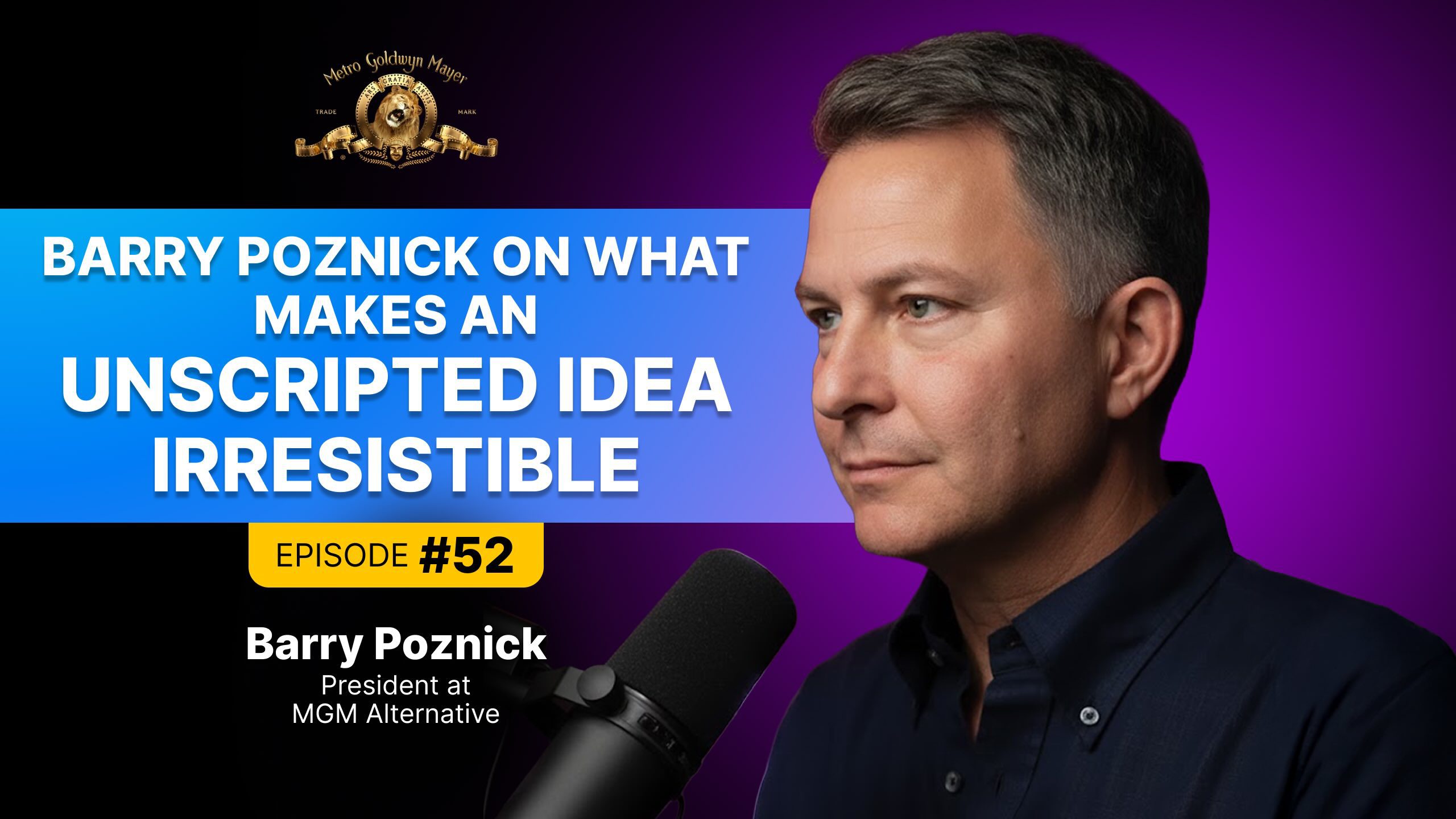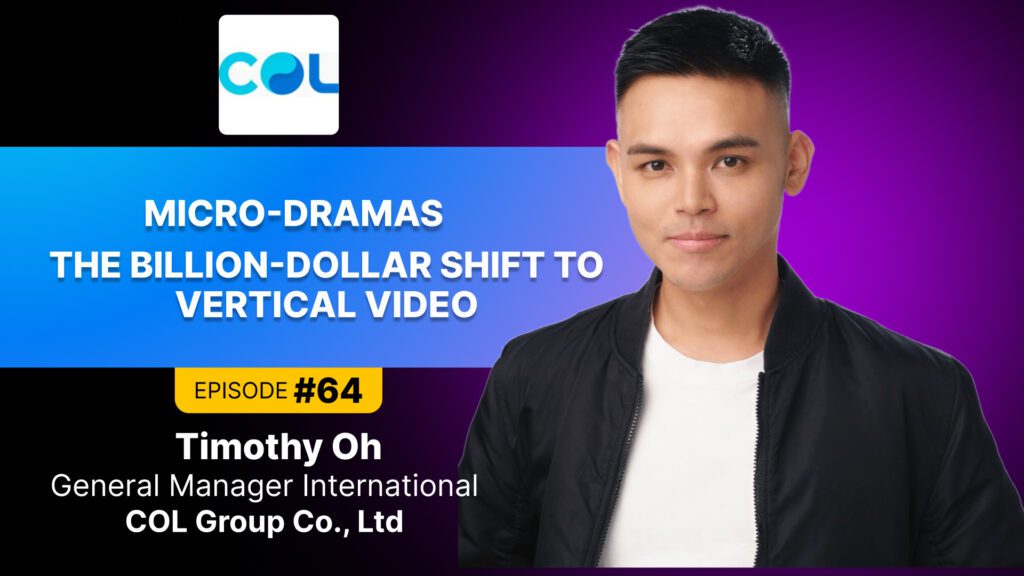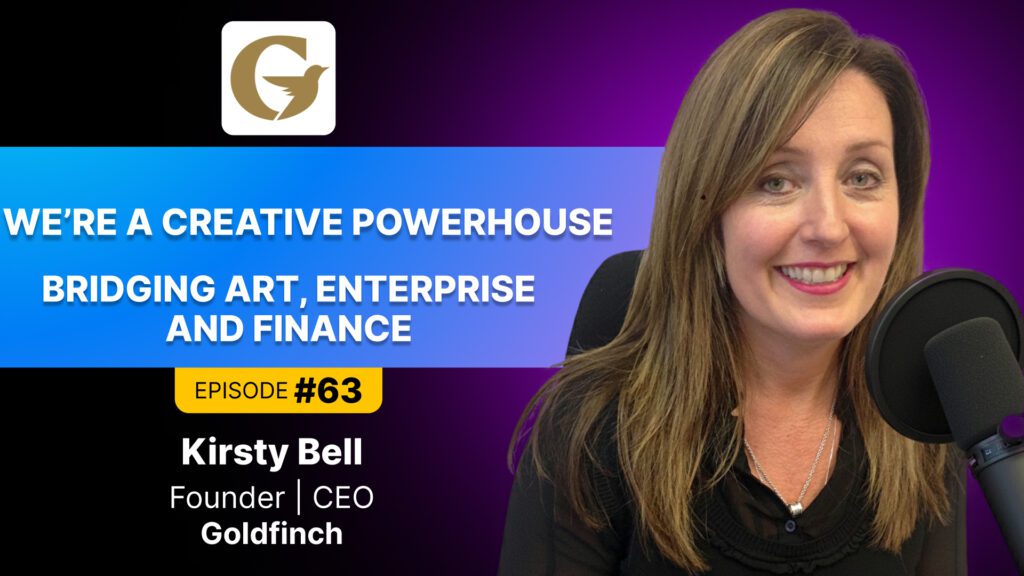We’re the number one unscripted studio in the world… the scope of what MGM Alternative does is unprecedented.
Podcast Chapters
| Time | Chapter Title |
| 00:00 | Barry Poznick’s Journey to MGM Alternative |
| 09:39 | The Power of MGM Alternative |
| 20:11 | Navigating the Changing Landscape of Television |
| 25:45 | The Evolution of Unscripted Content |
| 30:33 | Navigating the Streaming Landscape |
| 34:42 | Global Perspectives in Content Creation |
| 39:22 | Partnerships and Collaborations in the Industry |
| 42:48 | The Future of Unscripted Productions |
| 48:04:00 | Exciting Developments Ahead |
Every idea needs to be profitable. And now we have more levers to pull… development today means knowing how it leans into social, how it distributes on YouTube, how it drives sales for advertisers or integrated products.
Key Takeaways:
-
MGM Alternative runs 35+ shows across every genre.
-
Success requires profitability across social, streaming, and sponsors.
-
Development must start with ideas that truly resonate.
-
Streaming demands premium unscripted with cinematic production values.
-
Global formats like The Apprentice thrive across multiple continents.
Sound Bites:
-
“Launching a show today means ensuring success every way possible.”
-
“YouTube today is essentially what syndication used to be.”
-
“Every idea needs to be profitable from the start.”
-
“I don’t pitch a show without everything figured out.”
-
“We service all partners globally while expanding with Amazon.”
About MGM Alternative
MGM Alternative is the world’s leading unscripted television studio, producing a powerhouse slate of reality series, competition formats, and global franchises. Home to iconic titles like Shark Tank, Survivor, The Voice, Real Housewives, and Are You Smarter Than a Fifth Grader?, the division delivers more than 35 shows currently on air or in production across broadcast, cable, streaming, and digital platforms. With a creative focus on ideas that resonate worldwide, MGM Alternative develops premium, scalable formats that connect audiences, advertisers, and streamers alike. Backed by the global reach of Amazon, the studio continues to expand its footprint and shape the future of unscripted storytelling.
Why Partner With MGM Alternative?
-
Unmatched Global Reach – Over 35 hit shows across networks, streamers, and international markets.
-
Proven IP Powerhouse – Creator and producer of iconic global formats like Shark Tank, The Voice, and Survivor.
-
Creative & Strategic Expertise – Development teams ensure every project is audience-tested, advertiser-friendly, and socially resonant.
-
Scalable Storytelling – From premium streaming series to fast channels and YouTube, content thrives across platforms.
-
Backed by Amazon – Access to global distribution, innovative tech, and expansion opportunities across divisions.
In Conversation with Barry Poznick, President at MGM Alternative
This is a written version of the podcast with Barry Poznick, the President of MGM Alternative, summarized for quick reading. It has been republished in a Q&A format.
1. Vitrina: How did you first get into show business?
Barry Poznick: I grew up a pop culture-obsessed child of the 80s in New York. I loved the idea of show business, but I didn’t really know what it was. This was decades before YouTube existed, and consumer-level video cameras were just being introduced. I begged my parents for one, even tricking my mom into getting it for my dad’s birthday, just so I could use it. My friends and I would make videos of everything, and I taught myself about lighting and lenses. It was a really fun, creative, and experimental time for me, even though I didn’t know it could be a career.
“I grew up a pop culture obsessed child of the 80s.”
2. Vitrina: What was your first big break in the industry?
Barry Poznick: My first big break came after college when I got the opportunity to become a production assistant at a daytime talk show called Sally Jesse Raphael. This was in 1990-91, during the daytime talk show boom. Although it wasn’t my dream job and I wasn’t a viewer of the show, I loved the idea of working in television. I met incredible people, many of whom are still lifelong friends, and learned so much from the show’s producers and host. I was the first one in and the last one out, and I loved the idea that we got to make an hour of television every single day. I realized, “these are my people”.
“They say when a door opens, go in, you know?”
3. Vitrina: How did you come up with the idea for Are You Smarter Than a 5th Grader?
Barry Poznick: The idea for Are You Smarter Than a 5th Grader? came from a real-life moment with my wife. She was a successful magazine editor but was teary-eyed while holding our newborn baby, saying she didn’t remember anything she learned in school and didn’t know how she was going to teach our child. To make her feel better, I jokingly asked her a few grade-school-level questions, and she got them wrong. At that moment, I realized it was a perfect concept for a TV show. The show became a huge, global hit and was the number one game show premiere in television history, with over 30 million people tuning in.
“Are you smarter than a fifth grader is the show that changed the trajectory of my life.”
4. Vitrina: What is the current focus of MGM Alternative?
Barry Poznick: We are the number one unscripted studio in the world, and I still love what I get to do for a living. The scale of MGM Alternative is incredible, with some of the biggest IP in the world, including Shark Tank, The Voice, and Survivor. We also produce shows like The Real Housewives of Beverly Hills and Orange County. We have over 30 shows currently on air and in production across multiple genres, including reality, competition, and live police coverage. Our creative approach is strategic; we only develop content that we believe will resonate with audiences, network partners, and advertisers.
“The scope of what MGM Alternative does is unprecedented.”
5. Vitrina: How has the development process changed with new technologies and platforms?
Barry Poznick: The development process has changed significantly. In the past, you could pitch a show with just a good idea. Now, every idea needs a full business plan. We have to consider how a show will lean into social media, generate sales for integrated products, and be distributed across different platforms like YouTube and FAST channels. The key is to be “very, very buttoned up” before pitching. We don’t pitch a show unless we have everything figured out: the talent, the production model, the financing, and the marketing plan. YouTube now serves the same function that syndication used to, as a profitable channel for our content.
“Every idea needs to be profitable. And how are we gonna make it profitable?”
6. Vitrina: What role does unscripted content play for streamers like Prime Video?
Barry Poznick: The unscripted genre is evolving to meet the demands of streamers, which require premium production values that are on par with scripted dramas. Our show, 007: Road to a Million, is a prime example. We’re creating a show with epic production values that gets to play in the James Bond universe. We also create unique formats for the Amazon ecosystem, like Shopping Court, where consumer products are put on trial by a jury of Prime members. I loved the idea that Amazon was willing to try a shopping show that was kind of an “un-shopping show,” where a show could tell people why they shouldn’t buy a product.
“You get that this is worth me paying my membership each month, my subscription, to get this kinda content.”
7. Vitrina: How has the acquisition by Amazon changed your partnerships?
Barry Poznick: Since being acquired by Amazon, a lot has changed in a good way. While we still service all our partners at other networks and streamers, we now have access to a wealth of knowledge and resources, including courses on AI and leadership principles. A key principle is being “customer obsessed”. This means we have to serve our viewers, networks, and advertisers. We have gained clarity in our business approach and make decisions that are mindful of our entire universe. When we changed our show logos to include “an Amazon company,” our partners were completely unconcerned because mergers and acquisitions are now so common.
“The networks want a great show. The advertisers want a great show. So make a great show and everybody’s good with it.”
8. Vitrina: What is the future of unscripted content?
Barry Poznick: I believe the future of unscripted content involves several key trends. First, AI will be a massive tool in production, helping with everything from casting to creating titles. Second, podcasts, specifically the video versions, are becoming a prominent form of television because of their intimate and scalable nature. Finally, “gamification” will become a big trend, where viewers are able to interact with the content and even influence the outcome of a show. This allows for a “choose your own adventure” type of experience and directly engages the younger generation, who are accustomed to communicating directly with creators and influencers.
“Unscripted is the genre, unlike features, unlike dramas, unlike sitcoms, that can actually lean into that and deliver it quickly and have a choose your own adventure, you know, type experience for viewers.”





 London, United Kingdom
London, United Kingdom




